FBI, ATF, DEA, U.S. Marshals: What They Do…and many of you have it wrong!
You’ve completed the research stage of your next project, a mystery. You’d finally sucked it up and attended your local citizen’s police academy. You’ve bought every book about law enforcement you could find. You’ve contacted every friend of a friend of a friend of a cop. And you smartly attended the last Writers’ Police Academy. You are sooooo ready to write this book.
Stacks of notebooks overflowing with the information you’ve painstakingly gathered during the past several months cover the corners of your desk. You happily opened the first one, the one containing the information you learned at the beginning of the citizen’s police academy. Yeah, that week was a bit boring, so you found yourself daydreaming about the protagonist in your new book. Would he be tall? Short and muscular? How about a slight beard? No, the hero should be a woman. That’s it! You decided to….oh, yeah, you remember that you’d done more doodling than note-taking. Well, it wasn’t your fault that all those facts about who does what and when they do it, or not, weren’t very interesting.
The second notebook would be better. You were confident that… Hmm…caricatures of your classmates and not many notes. What did that officer tell you about the FBI investigating murders? Or, was it that the ATF does that? Yeah, that’s it. It must be the ATF agents (are they agents or officers?) who tell the local sheriff to back off because they’re taking over the murder case. No, only the FBI has that authority. After all, you read that in one of those murder mysteries you found at the garage sale, right?
Okay, enough of this nonsense. You decide to start writing, and you do. After shoving your notebooks to the floor you decide to write a lead character, an FBI agent, who chooses to “go rogue” and investigate the murder of a local auto mechanic who’d worked on the agent’s cars since he was 16-years-old. It was personal. Besides, the agent is on vacation so she can do whatever she wants, and solve a murder it is.
Sure, you vaguely remember someone saying the FBI doesn’t investigate local murders. ATF agents either, for that matter. But it just sounds more exciting to have the feds ride into town and do what they do best…solve murders, rapes, and robberies. Wow, you think, this book is going to be the best thing since Poe or Christie first set their thoughts to paper.
And off you go, typing away, paying no attention to the stack of notebooks the cat is now using as a day bed. Your literary agent, a man who believes that Car 54 Where Are You? is the ultimate police tale, loves your book, and so does your editor. Of course, she’s one of those folks who’s not quite sure how to spell FBI or ATF, so your book of little mistakes hits the shelves. And, much to your publisher’s dismay, the project you worked on for so long is not selling well, not even for free on Kindle. And the reviews from those who did read it were awful, especially from people who work in law enforcement and the court system.
Why, you ask, was the book not very well-received?
Easy answer. Because you didn’t bother to get your facts right. And all it would have taken was a quick peek at a few websites or cop blogs.
I often compare this foolish and careless lack of accuracy to someone hiring a plumber to do your dental work. Or, sign a computer tech to play quarterback for the New England Patriots. The two are nearly that far apart (a plumber is as near to being a dentist as an FBI agent is to local cop).
Anyway, here’s a bit of information that will get you started in the right direction. However, if you’re not interested feel free to print it out and use the paper for doodling while you try and figure a way to have Patriot’s quarterback Tom Brady solve a murder in DoodleBop, Utah.
Bureau of Alcohol, Tobacco, Firearms, and Explosives (ATF)
With offices in all 50 states and a staff of nearly 5,000 (both for compliance—ie-regulatory people who inspect gun dealers and explosives licensees—and criminal enforcement). The 2,000 +/- ATF special agents in the field handle investigations involving criminal organizations, the illegal use and trafficking of firearms, the illegal use and storage of explosives, acts of arson and bombings, acts of terrorism, and the illegal diversion of alcohol and tobacco products. ATF agents often work closely with local law enforcement officials, especially when local cases involve firearms. Illegal narcotics cases often involve guns, therefore, it’s not unusual for an ATF agent to investigate cases involving illegal drugs.
The ATF website features a fun page for kids.
Drug Enforcement Administration (DEA)
Multi-million dollar seizure of methamphetamine
The DEA was created by President Nixon in 1973. The mission of the DEA was to fight “an all out global war on the drug menace.” With a budget of $75 million and less than 1,500 agents, the DEA set out to stop drugs from taking over the country by developing long-range strategies and intelligence operations.
Early DEA guidelines required “clear-cut lines of command and control in enforcement situations and stressed that operations must be carried out in a manner that is legally correct, morally sound, with full respect for the civil rights, human dignity of persons involved, and the sanctity of the home.”
DEA agents of today are 5,000 strong, working out of 223 offices throughout the U.S., and operate with a budget of well over $2 billion. DEA agents also work with local agencies, often on DEA-led drug task forces.
Globally, the DEA has 86 offices in 67 countries.
For specific drug information, please visit DEA.
Federal Bureau of Investigation (FBI)
The FBI employs over 35,000 agents and support personnel, all working with a budget of well over $8 billion.
Contrary to what we see on television and read in many mystery books, the FBI does not work local criminal cases. That’s the job of state and local police departments and sheriff’s offices.
The FBI’s focus is the following:
1. Protect the United States from terrorist attack
2. Protect the United States against foreign intelligence operations and espionage
3. Protect the United States against cyber-based attacks and high-technology crimes
4. Combat public corruption at all levels
5. Protect civil rights
6. Combat transnational/national criminal organizations and enterprises
7. Combat major white-collar crime
8. Combat significant violent crime
9. Support federal, state, local and international partners
10. Upgrade technology to successfully perform the FBI’s mission
The FBI investigates:
U.S Marshals Services
The U.S. Marshals Service is the oldest federal law enforcement agency. U.S. Marshals are presidentially appointed and serve each of the 94 judicial districts of the U.S. Currently, there are nearly 4,000 deputy marshals working throughout each of those districts.
U.S. Marshals are not the typical law enforcement officers investigating typical criminal cases. Instead, the duties of the U.S. Marshals Services include protecting federal judges, U.S attorneys, jurors, prisoners, and the general public, apprehending federal fugitives (escapees from federal custody and those who are wanted on indictment or by warrant), managing and selling seized assets acquired by criminals through illegal means, housing and transporting federal prisoners to and from prison, jails, and courts, and operating the Witness Security Program.
Facts About The U.S. Marshals Service:
– U.S. Marshals apprehend nearly 350 wanted fugitives every day.
– Each day Marshals provide protection for 2,200 federal judges, and 10,000 other judicial employees.
– In 2012, the Marshals cleared over 39,000 federal warrants by locating and arresting 39,423 people wanted by the federal courts.
– In 2012, the Marshals cleared over 114,000 state and local warrants by locating and arresting 114,311 people wanted by state and local courts.
– The 2012 budget for the Marshals Service was $1.186 billion.
United States Postal Police
Officers of the United States Postal Police are responsible for protecting postal facilities and their employees, escorting high-value mail, and for securing the perimeters of postal properties. In addition to the 650 postal police officers, the U.S. Postal Service also employees 1,500 postal inspectors who investigate crimes involving mail fraud.
* Local police agencies investigate crimes that occur within their jurisdictions, including kidnappings and murder. If they need assistance they normally call on the sheriff or state police. If they decide they need the assistance of a federal agency, that agency will gladly help out in a supporting role.
By the way, cordite is no longer used in ammunition, so your heroes can’t smell it when they enter a crime scene. Well, unless they were 16 when Car 54 Where Are You? first aired.

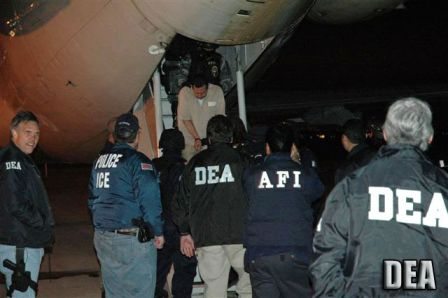

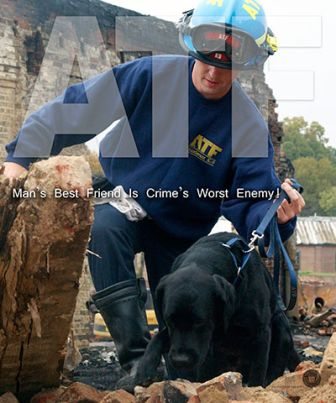
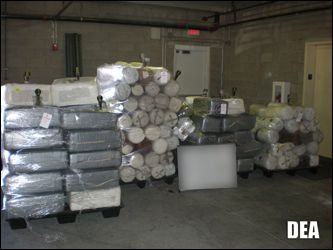

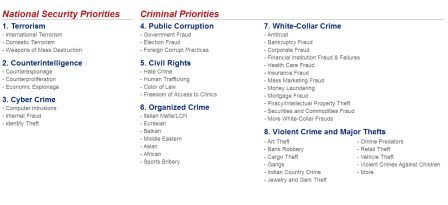

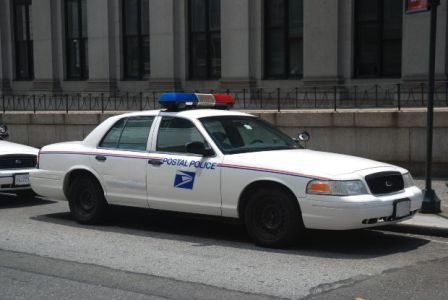



To me, it has an odor very similar to the smoke left behind by 4th of July fireworks.
Thanks for all this great info, Lee.
I’ve seen you explain the cordite thing several times (and yet, I still see used — some people never learn…), but I don’t recall you ever said what is the correct way to describe the odor after gunfire. Is there a word for it? Gunsmoke maybe?
Great run down of the various departments. Had to tweet this one!
Great information, Lee. Thanks for sharing.
E.S. – Art theft is included in the information above under #8, Violent Crime and Major Theft. It’s the first on the list – Art Theft, Bank Robbery, etc.
Lee,
This is useful information.
Thanks!
Hi Lee, You may want to add that the FBI has an Art Theft Crimes division. One of their duties is to see to it that art looted during the Holocaust is returned to their rightful owners. They also work on interstate art theft crimes. They work with museums, galleries, and individuals.
Thank you, Lee. You do a tremendous service for writers. Exactly what I’ve always wanted. Will print this information out to have at my fingertips.
Lee, it’s fantastic to see information collected like this. What trips me up is not ignoring facts, it’s finding accurate information. We don’t have a citizen’s police academy in my area. There are tons of websites and not all are accurate. Even some of the accurate ones have a lot of “legalese” that isn’t easy to understand for people who don’t have a law enforcement background.
To make it even harder for me, I’m writing a story that takes place from 1986 to 1992. The vast majority of info I find is only for the current day. It’s tough when you don’t have contacts! So thanks for putting this together.
I’m amazed at all the lab people on TV who carry guns. Hmmmm. I worked in a lab once. Never had a gun permit,though.
Thank you for the useful information.
No, Homeland Security is sort of at the top of food chain. It’s easier to post a link to the different agencies that are under Homeland Security.
http://www.dhs.gov/who-joined-dhs
This may be a silly question, but I thought Homeland Security was supposed to be about terrorists, or are they part of the FBI?
There are far too many odd police departments to even attempt listing here. I just hit the ones I see most in books.
Border Patrol
Capital Police
Defense Criminal Investigative Service
U.S. Department of State Diplomatic Security
U.S. Fish & Wildlife Service
Naval Criminal Investigative Service
Secret Service
Air Marshals
Bureau of Citizenship and Immigration Services
Bureau of Justice Statistics
Department of Homeland Security
Federal Bureau of Prisons
Immigration and Customs Enforcement
National Institute of Corrections Information Clearinghouse
National Institute of Justice
National Law Enforcement and Corrections Technology Centers
Office for Correctional Education – U.S. Department of Education
Office of Juvenile Justice and Delinquency Prevention
Office of Victims of Crime
Transportation Security Administration
U.S. Department of State Bureau of Consular Affairs
U.S. Parole Commission
U.S. Sentencing Commission
To name a few…
Plain cement makes a lovely concrete. Very expensive way to go, without the sand and aggragate, but very smooth and strong. Just add water (or leave a bag out in the rain).
Besides the Secret Service and military police and the Park Service, are there any other federal personnel that do any form of policing? NSA, DHS, or they all too busy reading our mail?
Good stuff. Succinct, clear, on point. Accurate. You left out the US Secret Service.
And I don’t quite get the reference to hiring a plumber (not the Watergate kind)for law enforcement work. But it’s kind of similar to references to people/vehicles/aircraft standing on the tarmac at a busy airport. Maybe at a small airfield, not in Chicago, or Miami or even Teeterboro. Tarmac can’t handle the traffic.
Then there’s a FBI agent running up the cement steps. Good luck with that. A big cloud of powder. Cement is a dry ingredient of concrete, folks. Has little or no inherent strength. I could go on, but I won’t.
Thanks for the info
Interesting and useful stuff, Lee. But offhand, I’d say the FBI is major fail on a number of their listed goals…lol
Thanks for the very useful article, Lee.
You’ve mentioned before that cordite is no longer used in ammunition. I remembered that while watching this week’s episode of “King & Maxwell,” in which Michelle Maxwell, at a crime scene, says she doesn’t smell any cordite. Whoever wrote the script didn’t know that she wouldn’t regardless of how many shots were fired.